 Your new post is loading...
 Your new post is loading...
Over the years, Apple has made it prohibitively difficult to install unapproved software on its locked-down devices. But on Saturday, a hacker group called Unc0ver released a tool that will "jailbreak" all versions of iOS from 11 to 13.5. It's been years since a jailbreak has been available for a current version of iOS for more than a few days—making this yet another knock on Apple's faltering security image. Unc0ver says that its jailbreak, which you can install using the longtime jailbreaking platforms AltStore and Cydia (but maybe don't unless you're absolutely sure you know what you're doing), is stable and doesn't drain battery life or prevent use of Apple services like iCloud, Apple Pay, or iMessage. And the group claims that it preserves Apple's user data protections and doesn't undermine iOS' sandbox security, which keeps programs running separately so they can't access data they shouldn't. "This jailbreak basically just adds exceptions to the existing rules," Unc0ver's lead developer, who goes by Pwn20wnd, told WIRED. "It only enables reading new jailbreak files and parts of the file system that contain no user data."
How could Microsoft’s Windows Phone licensing business model stand a chance against Google’s Free and Open Android? None of the Redmond giant’s complicated countermeasures worked, its smartphone platform is dead. And yet, inexplicably, Microsoft failed to use a very simple move, one we’ll explore today.Just back from three weeks in the Country of Good Sin’s heartland, I see Microsoft’s fresh and well-received Fourth Quarter Fiscal Year 2017 Results. The numbers acknowledge what was already notorious: Windows Phone is dead. “Phone revenue was immaterial and declined $361M.” This doesn’t come as a surprise. Despite Microsoft’s strenuous efforts to breathe life into its smartphone platform and devices, Windows Phone had been on an inexorable downward slope for several years, confirming a Horace Dediu theorem[as always, edits and emphasis mine]: “As far as I’ve been able to observe, any company in the mobile phone market that ended up losing money has never recovered its standing in terms of share or profit.” Let’s recall that, in September 2010, Redmond employees held what CNET called a “tacky ‘funeral’” for iPhone and Blackberry. One wonders how they’ll memorialize Windows Phone. The gross failure of what once was the most powerful and richest tech company on the planet led to a search for a platform killer. Detectives didn’t think they had to go far to nab a suspect: Android. Microsoft’s Windows Phone was murdered by Google’s smartphone OS. How could Redmond’s money-making software licensing business model survive against a free and open source platform? Case closed. No so fast. Microsoft’s smartphone troubles started well before the birth of Android. In a reversal of the famous dictum Victory Has Many Fathers But Defeat Is An Orphan, Windows Phone’s collapse seems to have had many progenitors deeply embedded in the company’s decades-old culture. But before we look at facts, let’s engage in a bit of fiction, let’s imagine Microsoft decides to fight Android on Google’s turf. In this alternate reality, Microsoft easily kills Android with one simple headline: Windows Phone Now Free The rest of the pitch writes itself.
In the past 40 years our personal computers have, of course, become immensely more powerful and convenient, but the roots of our interest in personal computing haven’t changed. And, against many odds Apple, has become a giant, world-spanning, immensely rich company. In retrospect, we can see three Apple eras. Apple 1.0 was a turbulent period: The rise of the Apple ][, its loss to the IBM PC and Microsoft; the hope and trouble with the Macintosh; Jobs forced out followed by a succession of “professional” CEOs and progressively deteriorating finances. In retrospect, Jobs’ departure from Apple was one of the best things that happened to him and the company he co-founded. If hadn’t left for an outside tour, the Pixar success and the NeXT technical achievements and business challenges, he wouldn’t have been able to return and jump start the company’s next phase. Apple 2.0 began in late 1996 when Jobs managed what turned out to be a reverse acquisition of Apple. We owe much gratitude to then-CEO Gil Amelio who unwittingly saved the company hiring Steve to “advise” him. Jobs’ advice? Show Amelio the door and install himself as “interim” CEO. Jobs then made an historic deal with Bill Gates which gave him time to let his team of NeXT engineers completely rebuild the Mac OS on a modern Unix foundation. Steve also rummaged through the company and found Jony Ive who gave us the colorful iMacs, the first of a series of admired designs. What followed is recognized as the most striking turnaround story in any industry, one that has been misunderstood and pronounced as doomed at almost every turn. The list of Jobs’ “mistakes” includes killing the Macintosh clone program by canceling Mac OS licenses; getting rid of floppies and, later, CD/DVD-ROMs (mostly); entering the crowded MP3 player field; introducing iTunes and the micropayment system; the overpriced, underpowered $500 iPhone; the stylus-free iPad (ahem)… We’ve seen the punishment for these mistakes: Apple sells approximately $250B worth of iPhones every year, that’s six phones every second manufactured and delivered to more than 130 countries. Despite it’s enormous size and influence, Apple’s business remains simple to understand. The company makes personal computers, as illustrated in this telling line-up: Personal computers, small, medium and large. Everything else Apple does — from iTunes to iCloud storage, apps and accessories — has one and only one raison d’être: Push up the volumes and margins of the company’s personal computers. Steve Jobs left us in early October 2011, Too Soon, as I wrote in my heartfelt homage to the once unmanageable co-founder who turned into a manager extraordinaire, captain of industry, and editor-in-chief of a team of designers, engineers, supply-chain managers, and finance experts. We’re now in the Apple 3.0 era, under Tim Cook’s leadership.
Apple's iOS 9 is expected to cause a boom in the use of IPv6, which could speed up service provider networks but create a lot of work for mobile developers. The new Apple mobile OS, coming out on Wednesday, will treat the new Internet Protocol as an equal to IPv4 instead of favoring the older system. That will cause iOS devices to use IPv6 much more, as long as apps, websites and carrier networks support it, according Facebook engineer Paul Saab. He led a panel discussion on IPv6 at Facebook's @Scale conference on Monday. Even when all the pieces are in place for IPv6, iOS 8 only makes an IPv6 connection about half the time or less because of the way it treats the new protocol. With iOS 9, and IPv6 connection will happen 99 percent of the time, Saab predicts. IPv4 is running out of unused Internet addresses, while IPv6 is expected to have more than enough for all uses long into the future. Adoption has been slow since its completion in 1998 but is starting to accelerate. The release of iOS 9 may give a big boost to that trend. "Immediately, starting on the 16th, I'm expecting to see a lot more v6 traffic show up," said Samir Vaidya, director of device technology at Verizon Wireless. About 50 percent of Verizon Wireless traffic uses IPv6, and Vaidya thinks it may be 70 percent by this time next year as subscribers flock to the iPhone 6s.
Last year, it took a shot at creating its own pseudo mobile operating system with Facebook Home, an Android app that replaced your home screen with a pretty stream of photos and updates from your Facebook feed. It was a dud. Then there were the series of separate mobile apps like Poke, Camera, and Paper that have largely failed to resonate with people. Most seem to be happy with the regular Facebook app, Instagram, and Facebook Messenger. But at today's F8 developers conference, Facebook unveiled some new tools that will give Facebook a deeper level of control over your phone, no matter what kind of device you use. The most important one is called App Link, a tool that developers can use to help their apps and websites talk to each other. To use Facebook's example, imagine looking up a movie review on your phone on the mobile Rotten Tomatoes site. Well, what happens if you want to use the Fandango app to buy tickets to that movie? As things stand now, you'd have to close out your browser, launch the Fandango app, and then search for the movie again. With App Link, the Rotten Tomatoes developers would be able to provide you with a link that lets you jump right into the movie's ticket page in the Fandango app. In theory, it's seamless. That process is also called deep linking, and it's been a messy problem for app developers until now. Apple, Google, and Microsoft don't make it very easy for developers to use deep linking on their respective mobile operating systems. App Link is open for any developer to use, so over the next few months you can expect to see more and more of your apps start playing nicely with each other.
Google Play worldwide downloads now exceed iOS App Store downloads by around 45%, driven by growth in emerging markets. Russia and Brazil have been on the rise for some time now, but Mexico and Turkey also had a strong influence on Google Play downloads in Q1 2014.The iOS App Store remains comfortably ahead in worldwide revenue, generating about 85% more revenue than Google Play. This gap narrowed over the last quarter though, as Google Play revenue increased markedly in the United States and United Kingdom.China was the key market for iOS App Store growth, showing exceptional gains in both downloads and revenue. iOS App Store revenue in China grew around 70% quarter-over-quarter.Games remained the key category driving growth in both app stores. However, there was also growth in categories outside of Games. Tools saw gains in Google Play revenue, dominated by anti-virus and security apps. On iOS, Finance grew in revenue during tax season in the United States.Messaging apps remained a huge growth area, contributing to the gains for the Communication category on Google Play and Social Networking on iOS.
If there's one negative thing you've heard about the iPhone in past few years, it's that it's getting walloped in market share battle with Android. Around the world, that's certainly true, but in the U.S., the iPhone is doing pretty well. As you can see in this chart from Statista based on data from comScore, Android is actually falling while the iPhone continues to take share.
Apple is going to integrate IAC's video site Vimeo and Yahoo's photo sharing site Flickr into the next version of iOS, the software that runs iPhones and iPads, Mark Gurman of 9 to 5 Mac reports. Gurman says iOS users will be able to upload video straight to Vimeo from their iPhones and iPads, just like they can currently upload straight to YouTube. The same will be true of Flickr. iOS users will be able to quickly upload their photos to Flickr straight from their devices. This is going to be really good for Apple, Yahoo, and iOS users. Yesterday, Yahoo announced a redesign for Flickr, and an increase in storage to 1 terabyte of data. This means that you can pretty much store all of your photos in Flickr.
"Other" content slowly eating up a significant chunk of iDevices available storage on iTunes
Several iDevices users have reported a steady yet significant inflation of device storage memory taken by "Other" content than Music, Photos, Videos, Apps, Books... Nobody seems to have a clue of what this "other" space is used for, nor how to bring it down to zero. Documented tricks like shutting down the iPhone, or performing a Save / Restore from iTunes won't let it go, at least on some iDevices including my iPhone and iPad. More intriguing, such space seems to be growing at each iTunes sync. On the above image you'll see a situation where "Other" now eats almost 1/3 rd of my total available space. What about you ?
Android's share of the Chinese smartphone market ended the third quarter at 90 percent.
According to Analysys International, Android's share is up from 83 percent a quarter prior and 58 percent a year ago.
With the Chinese market now accounting for a quarter of global smartphone shipments, Android's dominance there is driving its widening lead in global smartphone platform market share.
In China, Android's gain has mostly come at the expense of Symbian, Nokia's antiquated platform that will eventually disappear as Nokia shifts its product offerings on to Windows Phone.
Interestingly, despite its dominance, Google only offers limited support for Google Play in China and Android apps are usually downloaded in third-party app markets.
Apple, meanwhile, has never really gained traction after a weak market entry on only one of the country's major providers. The iPhone 5 will be available on two carriers, but as of now will not be distributed by the largest carrier, China Mobile. Additionally, while many Chinese consumers may fawn over iPhones, they are simply out of reach financially for a substantial part of the market.
For the last couple of years, sales of Android-based smartphones have been smoking every other kind of smartphone, including the iPhone. Android phones now account for nearly 75% of the global smartphone market. The next closest competitor is iPhones, which have about 15% of the market.
In the U.S., Android is clubbing iPhone 53% to 34%. Given such a disparity in phone sales and usage, you would think that things people do with smartphones--smartphone-based activities--would be equally dominated by Android.
But they aren't. They're not even equal.
In fact, iPhone users completely dominate Internet-based smartphone activities. A recent survey of mobile web usage found that a staggering 60% of mobile web visits came from iOS devices, while only 20% came from Android. A study IBM did of Black Friday online sales showed much the same thing--except that it was even more skewed. iOS (iPads and iPhones) accounted for nearly 20% of Black Friday sales. Android devices, meanwhile, accounted for only 5.5%.
Google Chairman Eric Schmidt revealed the company is now activating 1.3 million Android devices on a daily basis, up from 900,000 in July. For some context, Apple sold ~46.4 million iOS devices last quarter, or 515,500 per day.
|
Apple shut down Google’s ability to distribute its internal iOS apps earlier today. A person familiar with the situation told The Verge that early versions of Google Maps, Hangouts, Gmail, and other pre-release beta apps stopped working alongside employee-only apps like a Gbus app for transportation and Google’s internal cafe app. The block came after Google was found to be in violation of Apple’s app distribution policy, and followed a similar shutdown that was issued to Facebook earlier this week.
TechCrunch and Bloomberg’s Mark Bergen reported late Thursday that the apps’ functionality had been restored; Apple appears to have worked more closely with Google to fix this situation. “We are working together with Google to help them reinstate their enterprise certificates very quickly,” an Apple spokesperson earlier told BuzzFeed.
APPLE BLOCKED FACEBOOK AND THEN GOOGLE
Apple’s move to block Google’s developer certificate comes just a day after Google disabled its Screenwise Meter app following press coverage. Google’s private app was designed to monitor how people use their iPhones, similar to Facebook’s research app. Google’s app also relied on Apple’s enterprise program, which enables the distribution of internal apps within a company.
In an earlier statement over Facebook’s certificate removal, Apple did warn that “any developer using their enterprise certificates to distribute apps to consumers will have their certificates revoked.” Facebook’s internal iOS apps have since resumed functioning, as the social network said this afternoon that Apple had restored its enterprise certificate.
Apple is clearly sticking to its rules and applying them equally to Facebook, Google, and likely many other companies that get caught breaking Apple’s rules in the future.
There’s growing evidence that a number of companies are using Apple’s enterprise program to distribute apps to consumers. iOS developer Alex Fajkowski has discovered that Amazon, DoorDash, and Sonos all distribute beta versions of their apps to non-employees. Apple may be forced to take action against these apps, or to even revamp its entire enterprise program in the future.
Update 1/31, 5:45PM ET: Article updated with comment from Google, Apple, and details on other companies using Apple’s enterprise program to distribute apps.
Update 1/31: 6:18PM ET: Updated with the news that Apple has resumed letting Facebook use internal iOS apps.
Update 1/31: 10:30PM ET: Updated with the news that Apple has restored functionality to Google’s apps.
The iPhone’s 10th birthday was a happy opportunity to look once again at Steve Jobs’ masterclass in storytelling and positioning, and to contemplate, with incredulous gratitude, the enormity of the consequences. As Horace Dediu, our nonpareil tech historian and poet, recently remarked with his trademark humor, The First Trillion Dollars is Always the Hardest [as always, edits and emphasis mine]: “In its first 10 years, the iPhone will have sold at least 1.2 billion units, making it the most successful product of all time. The iPhone also enabled the iOS empire which includes the iPod touch, the iPad, the Apple Watch and Apple TV whose combined total unit sales will reach 1.75 billion units over 10 years. This total is likely to top 2 billion units by the end of 2018. […] iOS will have generated over $1 trillion in revenues for Apple sometime this year. In addition, developers building apps for iOS have been paid $60 billion. The rate of payments has now reached $20 billion/yr. No one saw it coming, Apple execs included. For their part, the high tech incumbents made many infelicitous statements, only to be steamrolled when the iPhone and, later, Android changed everything. The Smartphone 2.0 wasn’t just a one-to-one communication device, it influenced media creation and consumption, transformed everyday commerce with in-phone wallets and touch ID, turned social networking into a ubiquitous tool. It even forced Enterprise information systems to completely rethink and retool their infrastructure — this wasn’t simply a computer with a “smaller form factor”. In retrospect, the ascendency of Smartphone 2.0 and the way it has shaped our culture seems obvious and natural. But the celebration and contemplation overlooks a crucial Sine Qua Non, a necessary (but not sufficient) condition: Unlocking the carriers’ grip on handset specifications, marketing, and content distribution.
Tens, if not hundreds of thousands of non-jailbroken devices are believed infected after a Trojan compiler malware struck in China.
It involves a maliciously modified version of the XCode integrated development environment (IDE) -- a nasty trick that places it among a family of malware known as "compiler malware". While not a wholly new strategy, this is the first time that we've seen proof of such a strategy being used to target the iOS crowd. It's also remarkable in its ability not only to threaten users of non-jailbroken devices but every version of iOS, as well.
And by the looks of it, it's a very succesful indeed as it in effect transforms Apple's walled garden and singular source -- an approach that for so long helped to secure Apple's userbase -- into a digital weapon to attack users. After all developers trust XCode -- they have to because they have no other choice. But if they get their copy of Apple's software from a third party (as many even in the U.S. do) they may find their apps secretly Trojanized.
And to make matters worst, in this case Apple is the Trojan dealer, not some sketchy piracy site. iOS users trust the App Store -- because they have to. Officially, Apple contends any other source of apps for the iPhone is illegal. But in this recent breach Apple was very cleverly -- and some would say alarmingly easily -- tricked into distributing malware to 25,000+ iPhone owners.
"Made in USA" Smartphone OS share surges from 5% to 97% in 8 years
This morning, former analyst and venture capitalist Mary Meeker releases her in-depth look at the state of the web at Re/code’s CodeCon conference. The Kleiner Perkins Caufield & Byers partner also hints at up-and-coming startups and uncovers digital trends with an array of surprising stats.
Greg Christie, a senior engineer at Apple, revealed to the Wall Street Journal that Steve Jobs gave his team an ultimatum back in February 2005: Come up with some big ideas for the iPhone within two weeks or lose the project to another group. Christie’s team would go on to innovate some of the more iconic features of the iPhone, like its “slide to unlock” feature and its integrated music player. It’s hard to remember this today, when we’re surrounded by touchscreen smartphones and tablets, but before the iPhone, few were thinking about touchscreen user interfaces. He described the team working on the original iPhone’s software as “shockingly small” and noted that they “banged their head against the wall” to figure out a way to make text messages look more conversational, rather than a mere list of text. But as Christie’s team made headway and Jobs began obsessing about the project, it became clear they were making progress. Most intriguing to hardware geeks, Christie showed the setup his team used to build the first version of iOS: A plastic touchscreen connected to an aging Mac G3 (which mimicked the first iPhone’s slow processor), which was codenamed “Wallaby.”
Two new iPhones, two iWatches, and an Apple TV ? Apple will have a very busy second half of the year, according to KGI Securities analyst Ming Chi Kuo. In a new note released yesterday, and picked up at MacRumors, Kuo provided the following roadmap for Apple's product releases in 2013. Kuo is fairly plugged-in with Apple's suppliers and has a better track record than most.
Apple has released a massive update to its “iOS Security” white paper for IT professionals. It contains more information on iOS security than Apple has ever shared publicly before, including extensive details on Touch ID, Data Protection, network security, application security, and nearly all security-related features, options, and protective controls. For the first time, we have extensive details on iCloud security. For security professionals like myself, this is like waking up and finding a pot of gold sitting on my keyboard. Along with some of the most impressive security I’ve ever seen, Apple has provided a way to make it impossible for agencies like the NSA to obtain your iCloud Keychain passwords.
The iPad family accounted for 81% of tablet use in the U.S. and Canada during April, up slightly from a few months ago. Kindle Fires accounted for the second largest share, followed by Samsung Galaxy tablets. In other words, even though Android took its first lead in global tablet market share last quarter (see chart, right), that's not showing up in North American usage patterns. It's likely that Android tablets are filling out the low-end of the tablet market in the emerging world.
Microsoft and Apple are currently locked in something of a Cold War over the future of SkyDrive in the iOS App Store.
Sources close to Microsoft have detailed to TNW a difficult, and perhaps unresolvable situation between the two companies that underscores the difficulty with certain Apple rules concerning its app marketplace, and how far the company is willing to go to protect its vaunted 30% cut of in-app revenues.
The difficulty began when Microsoft rolled out the ability for SkyDrive users to purchase more storage space on the service. From that point, the company was not permitted to update its application in the iOS App Store.
The reason? It doesn’t pay Apple a 30% cut of subscription revenue generated by the application through the paid, additional storage. Microsoft, TNW has learned, has a new version of the application ready to go, including a key bug fix that would rectify a crashing bug, but cannot get it through.
Microsoft does not appear keen to pay Apple the 30% cut, as it lasts in perpetuity, regardless of whether a user continues to use an iOS device or not, as the billing is through their Apple account.
Therefore, if a user signed up for a few additional gigabytes on their iOS device, and then moved to Android or Windows Phone or not phone at all, for the length of their account, Apple would collect 30% of their fee for storage. This hasn’t sat well with Microsoft.
Microsoft has persisted in trying to work out a compromise with Apple, but has thus far failed to come to an agreement. The company offered to remove all subscription options from its application, leaving it a non-revenue generating experience on iOS. The offer was rebuffed.
If a service has a subscription option, it seems, and it is not listed in the iOS store, the application cannot, and will not be allowed. That is, unless you are small enough that Apple doesn’t bothers to check. I assume that smaller companies could slip under the radar.
UI design is about maintaining consistency while expanding possibilities. Looks like Facebook's latest iOS update does the opposite... Today facebook changed (once again) the gestures that everybody knew by now (given the high usage rate of the app), which will induce latency, friction and frustration from single handed, zero attention span millions of users. But maybe one can see some wisdom in such choices, that over time may be progressively forgotten. More frustrating are some feature reductions, namely in the photo area of the app that now longer allows posting pictures that are not in the camera roll. For instance, it is no longer possible to enrich a post with a photo picked in an existing album, including the photostream. This is a big restriction in terms of features and UI, with no understandable reason. Please voice your comments and reactions.
|



 Your new post is loading...
Your new post is loading...

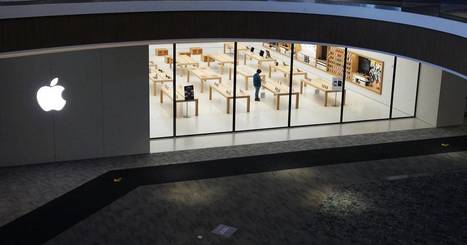

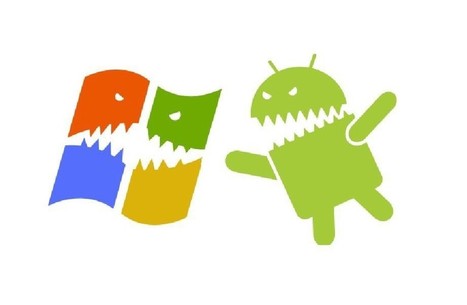



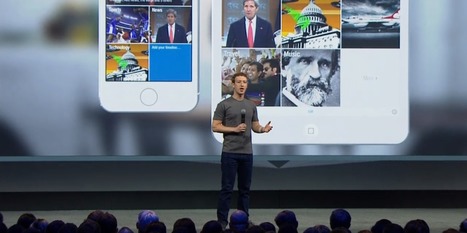
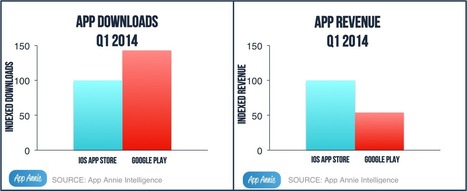
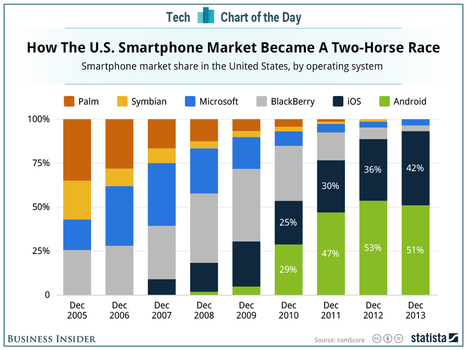
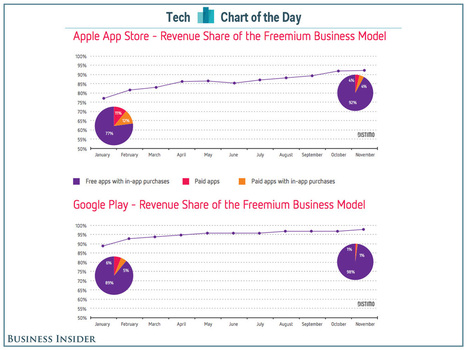
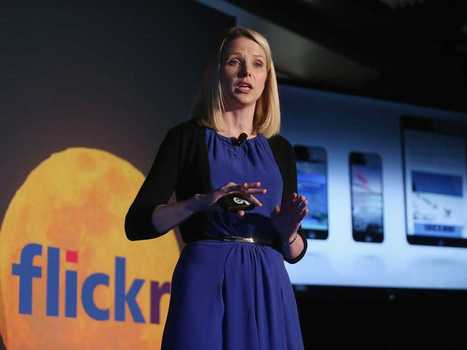


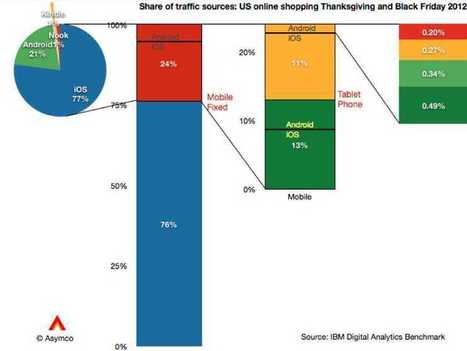
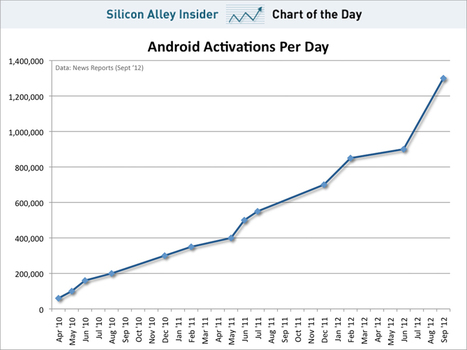
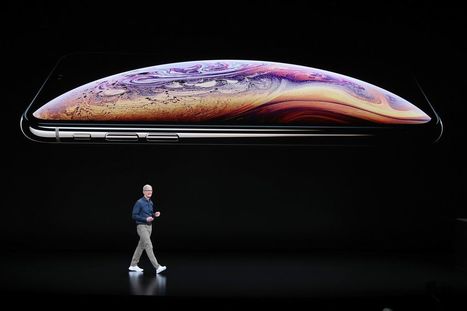
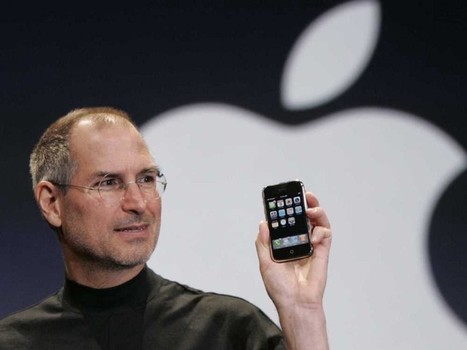
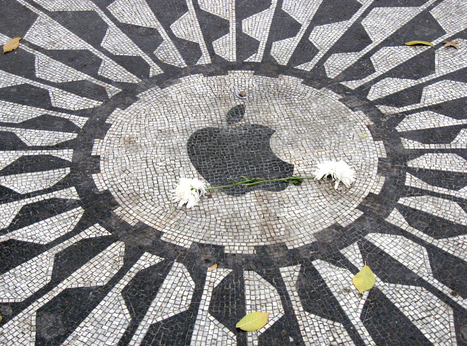
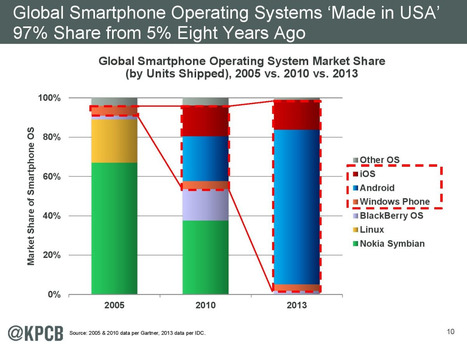

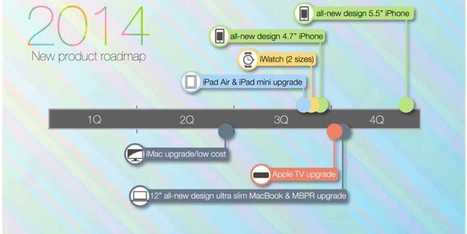










Impressive exploit given Apple's increased fortress walls thickness. Yet (why) should you jailbreak ?